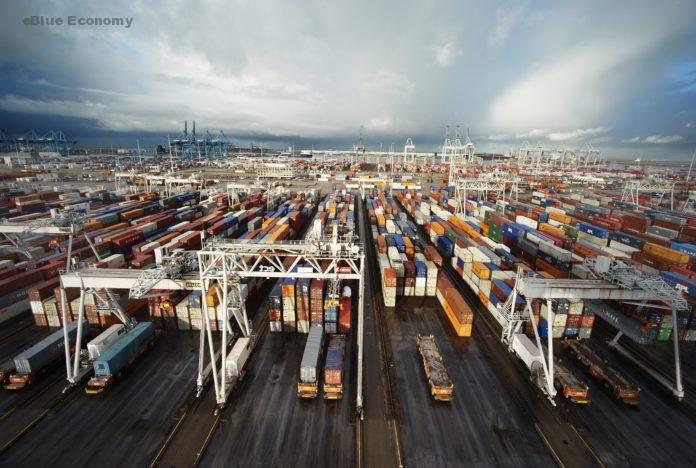Five seaports in North-West Europe have agreed to work together to make shipping cleaner. The aim is to provide large container ships in the ports of Rotterdam, Antwerp, Hamburg, Bremen, and Haropa (including Le Havre) with shore-based power by 2028 so that the on-board generators are not used when the vessels are berthed.
Vessels will then be connected to the mains power grid through a cable. That is good for air quality and for the climate as it will mean lower nitrogen and CO2 emissions
Containerschip CSCL Atlantic Ocean aan kade bij Euromax

Allard Castelein, CEO Port of Rotterdam Authority: ‘Rotterdam already has shore-based power connections for inland vessels at all public berths in the port area. Stena line in Hoek van Holland and Heerema’s berth in the Calandkanaal are also equipped with shore power. Last year, we launched an ambitious program to complete around eight to ten shore-based power projects by 2025.
Now, this collaborative international effort is also underway. This partnership is crucial to the success of shore-based power. We are going to harmonize how our ports tackle shore-based power. It should lead to standardization, reduce costs and speed up the application of shore-based power while maintaining a level playing field between ports.’
Ports moving together to reduce ship emissions at berth
The implementation of shore power is complicated. For instance, there is uncertainty about future policy, European or otherwise, regarding whether or not shore-based power should be made compulsory. International regulations will be needed so that ports spearheading sustainability do not lose their competitive position.















